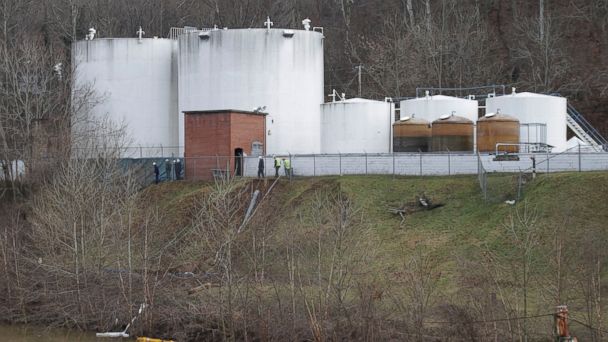Water 'Fine' for Some in Charleston as Chemical Leak Reaches Cincinnati

Steve Helber/AP Photo
In Charleston, W.Va., Eloise Demint was given the green light today that her water was finally safe to drink again, as communities more than 250 miles away from the original site of last week's chemical leak learned they were now in its path
Demint was one of about 10 percent of the 300,000 residents currently allowed to start flushing contaminated water from faucets and showers.
Demint said she thought her ordeal - six days without clean tap water - was over but when she turned on the tap, she found it still had a strong licorice odor.
"This doesn't smell good at all," she told ABC News. "I don't want to drink it. I'm not about to drink it. I don't even want to wash my dishes in it."
The chemical MCHM, a material used to clean coal in coal processing plants, began leaking from the bottom of a 48,000-gallon Freedom Industries storage tank Thursday morning and flowed into the Elk River, authorities said.
It contaminated the water supply for Charleston, and nine counties were under advisory to not drink the water. The toxin then continued rushing downstream to the Ohio River, reaching Cincinnati tonight.
More than 250 miles away, the Greater Cincinnati Water Works closed its two river-intake valves to protect the city's water supply as the toxic leak reached the Ohio River today.
"We have asked the people at the locks and dams to report to us when they smell it," Jerry Schulte of the Ohio River Valley Water Sanitation Commission told ABC News affiliate WCPO-TV. "They smelled it at 5 a.m."
RELATED: Charleston told not to drink water after chemical leak.
Officials said they had enough water in reservoirs to last until the chemical passed and river water was safe again.
Chemical plant Freedom Industries had not been inspected since 1991, officials said.
West Virginia officials told ABC News today said that those who had been told they could drink the water again should not worry.
"I'm perfectly confident that it's safe," said Randy Huffman, a cabinet secretary for the Department of Environmental Protection. "I thought it tasted fine."
ABC News' Susan Saulny contributed to this report.